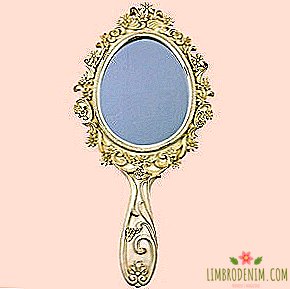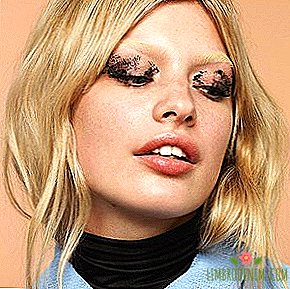Art critic Karina Karaeva about favorite books
IN BACKGROUND "BOOK SHELF" we ask journalists, writers, scholars, curators, and other heroines about their literary preferences and publications, which occupy an important place in their bookcase. Today, art historian and curator Karina Karaeva shares her stories about favorite books.

Formation of reading habits, or rather, moving away from the acoustic sound to the recorded text (I had many records with fairy tales at home, one of my favorite is Goldilocks), formed by my mother, who still tells everyone that I loved extremely scary, sad stories. I had a huge volume - a collection of Scandinavian fairy tales, which somehow shaped my attitude to the world and, perhaps, some cynicism about texts. The turnaround book for me in transitional age was Lawrence Darrell’s Alexandria Quartet, Hans Zedlmair’s Loss of the Middle, From Caligari to Hitler, by Siegfried Krakauer and Nikolai Punin’s Russian and Soviet Art.
Relationships with books developed inconsistently. I could dive headlong into memoir lyrics, then throw it away and be read by conceptualists who arose in the space of my interests as a result of unhappy love. For some reason it seemed to me that “Fragments of the lover's speech” is obvious and only about me, since Bart described all the classic cases of melancholy that arise in the case of love. Then, of course, I realized that Bart’s work was more about literary connectedness, about the lust of the text - and it was a tremendous linguistic shock for me: when literature serves itself, it exists for its own sake, and the reader’s feat is to get bogged down in it.
There are very few people whose opinion I listen to in choosing literature. Since I have to read a lot of professional books that I usually choose myself, my father remains the main censor in my preferences within the boundaries of classical texts.
By the lauded authors, I would call Elfred Yelinek and Mikhail Elizarov - I grabbed to read it and simply could not, because I felt a literally nauseous feeling from the construction of the text. And I would like Reinhard Yirgl and Robert Walser to read more. The most important writer in terms of language for me will be Konstantin Vaginov, and the most difficult relationship I have with Mikhail Kuzmin. That is, it is an ideal relationship, in the sense that his lyrics are one of my favorite ones, however, every time I read "The doors are painted with blue paint, the doors are oiled well with oil," it seems to me that I become a witness text violence, word violence.
I prefer to read in the morning for breakfast. Nothing special, just at dawn, the brain knows the text better and sometimes opens it again. I buy books at second-hand bookstores, I order them online, as I read a lot in foreign languages. Between fikshen and non-fikshen choose non-fikshen. Fortunately, I can store books in bookcases, which, of course, is not enough. Books are stored both at work and at home: the presence of several spaces for a library, on the one hand, forces time to move, on the other hand, there is always a place to read.

Franz Kafka
"Letters to Felicia and other correspondence. 1912-1917"
Forming my interests with Kafka is rather an opportunity to understand myself. Since I do not share personal fate and literature - hence my interest in memoirs and diaries, - Kafka is an ideal example of pathology, the destruction of the text. On the one hand, this is the physical desire of the letter ("... in the first hours of the new year there is no stronger and more foolish desire than the fact that our wrists, Your left and my right hand, are connected indissolubly", on the other - the constraint of the text, as he is categorically personal.
I also admire the construction of this book: the fact is that the author writes about his lover and his lover as if he created a utopian novel. Describing his every step, he turns to Felicia as a friend. And friendship is a category practically lost in a relationship. For example, in Francois Fedier, in Voice of a Friend, this sensual insufficiency is described. Actually, Kafka changes himself as a writer in letters to Felicia, because he forms the text in such a way that the relationship dynamics is read like a detective story - one of the most unloved of my genres. This is interesting, since it seems that the author purposely comes up with this composition of correspondence.
Walter Benjamin
Moscow Diary
The Moscow diary of Walter Benjamin is a different kind of confessional literature, for me connected with German romanticism. Topography as sensuality, the description of children's toys and the painful love of Asya and Benyamin flow into each other, as elements of a fairy tale in which the author is a knight, a deceiver and a deceived one. It also seems to me that Viktor Shklovsky in "ZOO, or Letters Not About Love", in a sense, anticipates Benjamin, since he explores the melancholy of distance and place. Here it seems to me that even Levy-Strauss's “Sad Tropics” is one of the possible contexts.
Sergey Dobrotvorsky
"Cinema by touch"
Eight years after the death of Sergei Dobrotvorsky, a book of his articles and lectures was published. By that time, I considered him one of the best critics, so I immediately purchased his book. This book is still the only incentive to engage in criticism. Dobrotvorsky is a very subtle stylist who understands how to construct a critical text in such a way as to read it as a compositional novel. Each of his articles is a tropic of the word.
Apuleu
"Golden ass"
The Golden Mule of Apuleius is in my circle of interests as one of the most complex and terrible texts. As a story, it is almost the Old Testament with its own system of submissions and complex links of the story. And, of course, carnival practice, which is close to me in the context of performance in art.
Daniel Birnbaum & Anders Olsson
"As a Weasel Sucks Eggs. An Essay on Melancholy and Cannibalism"
For me, this is a special dedication - reread this book. The fact is that curator Daniel Birnbaum created the very text space in art that I can’t get to. Therefore, on the one hand, this reading is practically physical immersion in modernist and contemporary art and literature, on the other hand, the chosen radical topic allows the authors to trace the development of melancholia through cannibalism as a form of unification and knowledge of the flesh.
It is almost impossible to describe this book, since the names of Nietzsche, Bernhard, Freud, Kristeva each time pass from the authors into the boundaries of the psychological and psychoanalytic description of melancholia and its paranoid versions. And yet this philosophical work is worth reading at least for the sake of the topic of food, devouring and smells, starting with Kafka’s “Transformation” and ending with Dieter Roth’s famous work “Staple Cheese”.
Charles dil
"On the shores of the Mediterranean"
It's hard for me to talk about this book, since it is my eternal journey. Dil is a researcher of genius loci, his writings are always descriptive. It is interesting for me to read it, because besides the historical facts that have sunk into oblivion and not so much of principle, this is a special viscous language, very characteristic of the beginning of the 20th century, in a similar vein, another one of my favorite "researcher" wrote, which went with friends Century to Italy to learn Italian types. Dil, as a researcher of Byzantine culture, describes everything seen almost as a Vasari, his meetings with contemporary artists.
"Film as Film: The Collected Writings of Gregory J. Markopoulos"
Four years ago, I went to the Markopoulos Film Festival. I heard about him, but I was not given the opportunity to see his work. The fact is that his lover Robert Beavers was instructed to show his films in the place where Markopoulos was born. Our journey was mysterious and magical, and probably the most special in the history of my festival adventures. Two years ago a book of manifestos, articles and letters of Markopoulos was published. Describing his method, his style and the ability to work with 16 mm film and keep a diary entry - Markopoulos was the closest ally of Jonas Mekas - the author, I think, comes to the assertion that the film method is a special way of painting.
Christian metz
"Imaginary meaning"
This book for me is due to my professional need, but it is also written by the language that is close to me, as well as the language of Nancy, for example. Christian Metz views film perception through an object / subject lens. And, in fact, the main pathos, in addition to my favorite definition of scopic cinema, is that the perception of the film is connected with the voyeuristic feeling of the viewer.
D. N. Rodowick
"The Virtual Life of Film"
His question "What was the movie?" Rodovik actually continues Bazin's idea of wanting to capture the surface of the world in a film. Rodovik’s approach, on the one hand, is photographic - he thinks the film as a set of photographic images, on the other - and this idea is close to me - it is connected with the unfolding of time in space. He also analyzes a new media culture for cinema, that is, digital technologies that involve symbolic imitation. And here already enters the category of the mark in the image.
Maurice Blancheau
Stories
I think that my interest in this book will never pass. I always come back to it, I even had several ideas for exhibition projects based on the ideas of Blanshaw. In fact, it seems to me that he defined all postmodernism. My favorite story is “The Madness of the Day”, in which on its first pages it gives the definition of death and the definition of egoism - two categories with which literature always works. "A story? No, no stories, never again."




